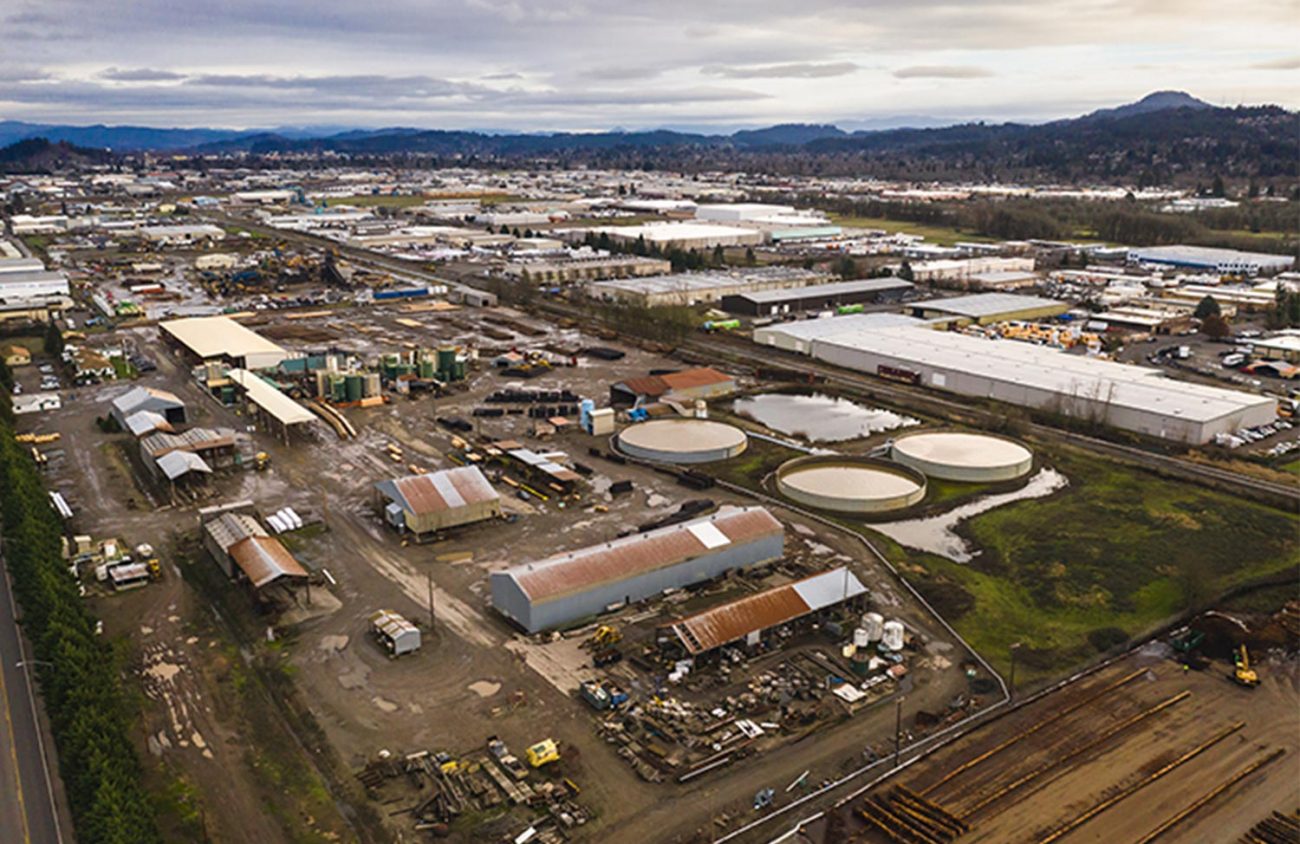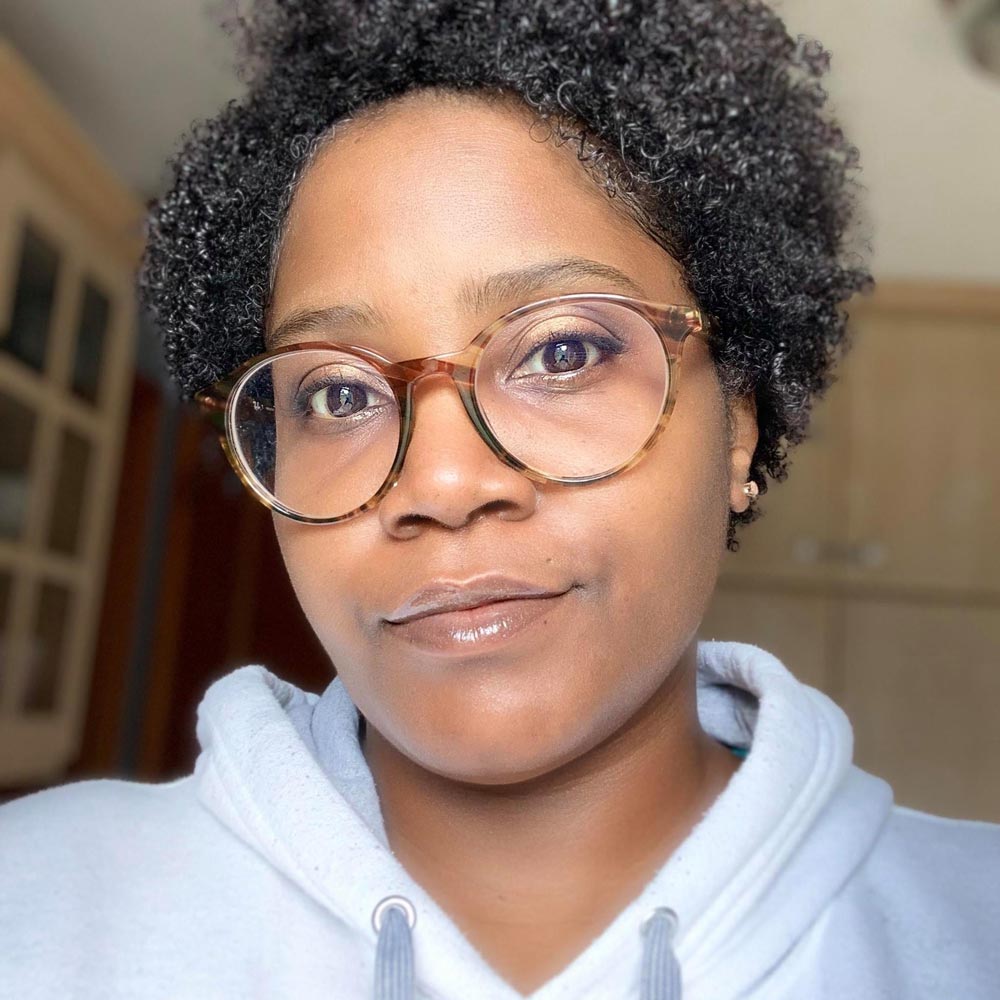Arjorie Arberry-Baribeault believes pollution in west Eugene is the reason her daughter and her best friend’s son were diagnosed with Hodgkin’s lymphoma without any known family history of cancer.
She alleges it’s no coincidence that two kids with no blood relation growing up in west Eugene near the J.H. Baxter wood treatment plant would have the same diagnosis.
“I believe the pollution in west Eugene has something to do with my daughter getting sick,” she says. “I think it has something to do with my friend’s son getting sick.”
Arberry-Baribeault’s story is not an anomaly.
Many families living in west Eugene have dealt with the effects of J.H. Baxter for decades. The plant’s pollution continues to fill the air and because of its failure to properly store hazardous waste, according to the Environmental Protection Agency, has left traces in the soil and groundwater of local neighborhoods. For these communities, positive change may be on the horizon. A creation of a multi-agency coalition is involving local residents to discuss the effects of living near industrial facilities.
This is the first time a group of this size has convened to collaborate, says Lisa Arkin, executive director of Beyond Toxics.
“The goal is to share information about J.H. Baxter through different media and to involve the community in a plan to clean up J.H. Baxter,” Arkin says. Beyond Toxics, west Eugene residents, the Lane Regional Air Protection Agency (LRAPA) and the Oregon Department of Environmental Quality (DEQ) are among the organizations involved in the group.
Dylan Darling, public affairs specialist for DEQ, says while they are still learning about the extent of the issue, the goal of the community engagement group is to have meaningful conversations with public stakeholders on the available information as well as to understand and address concerns from those living near the facility.
“DEQ and other agencies want to hear from the public and people living there and how the industrial industry might be affecting them,” Darling says. “We are also getting a conversation going about how regulation relates to Baxter.”
J.H. Baxter did not respond to request for comment.
In addition to being charged almost $36,000 in fines over the years for various reasons, including water quality violations and non-compliance, J.H. Baxter was also labeled a significant non-complier (SNC) by DEQ in 2011. According to the department, an organization can be designated as an SNC if it causes actual exposure through hazardous waste, violates the law willingly or is a chronic violator. DEQ can use any one of the criteria in labeling an organization as an SNC.
In December 2020 DEQ announced that it was investigating an elevated level of dioxins, which are a group of toxic chemical compounds, found in soil near J.H. Baxter. A press release sent at the time said that the toxins did not pose an immediate risk and that J.H. Baxter was the suspected source, though it was not confirmed.
The coalition held its first meeting in December and plans to meet around once a month. Arkin says that accountability is also an important goal of the collaboration. She says the neighborhoods and community members affected by J.H. Baxter have not been included in conversations in the past.
“I would say that this makes a difference for many ways, and for us, the most important way it makes a difference is to include the community in decision making processes in cleaning up for a frequent and significant polluter,” Arkin says. The community’s experience, she adds, is necessary to the process of regulating the plant’s actions.
Arberry-Baribeault, who also works for Beyond Toxics as the west Eugene community organizer fellow, is a member of the coalition. She joined Beyond Toxics in October 2020 after taking it upon herself to investigate the pollution of nearby neighborhoods, which she thinks is responsible for her daughter’s cancer.
Arberry-Baribeault says her daughter, Zion Thompson, was 13 when she was diagnosed. Thompson went through three years of radiation, chemo and hospital operations.
“I have a child who is now cancer free, which is an absolute blessing in our lives,” Arberry-Baribeault says. With all the stress of a child with cancer, Arberry-Baribeault says she didn’t initially think about it being for any specific reason.
Then, her best friend’s son was diagnosed with the same cancer. Their family also had no recent history of cancer, Arberry-Baribeault says. Although Thompson is cancer free, Arberry-Baribeault says her friend’s son is still undergoing treatment.
“They grew up together and played in the same parks in the same water. They went to the same daycare around where we lived. I mean they grew up as cousins,” she says. The west Eugene neighborhood where Arberry-Baribeault raised Thompson was inexpensive. She explains that many families purchase their starter homes there because the housing is cheaper. But they live in a bubble of pollution, she says.
Since joining Beyond Toxics, Arberry-Baribeault says she has interviewed neighbors near the J.H. Baxter plant and has heard similar stories — the smell making them sick, random family members getting cancer. The coalition will provide a chance for these residents to give input on their lived experiences.
“It will take decades to clean that up, but that’s why we need to start now,” Arberry-Baribeault says. ν
Help keep truly independent
local news alive!
As the year wraps up, we’re reminded — again — that independent local news doesn’t just magically appear. It exists because this community insists on having a watchdog, a megaphone and occasionally a thorn in someone’s side.
Over the past two years, you helped us regroup and get back to doing what we do best: reporting with heart, backbone, and zero corporate nonsense.
If you want to keep Eugene Weekly free and fearless… this is the moment.

